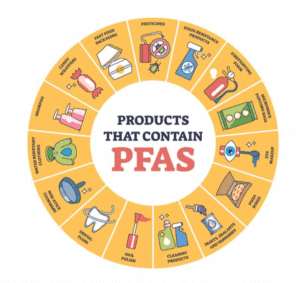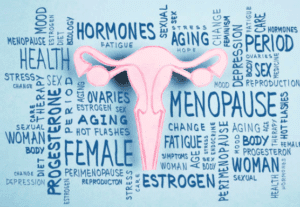As an Obstetrician and physician trained in Functional Medicine, I am committed to introducing future parents to the little-known world of health before conception. From infertility to developmental disorders, the goal of safeguarding humanity’s future and respecting every infant can be achieved by preventing birth defects and helping couples to conceive, give birth, and raise healthy, happy children. This means giving couples a roadmap for reducing their biological age so that they can safely conceive a healthy child. A4M-accredited physician, Dr. Shabnam Das Kar tells you what you need to know before you plan a pregnancy.
Every parent wants a healthy baby and preconception care offers a unique opportunity for couples to improve their health before trying for a pregnancy. Increasingly at unprecedented levels worldwide, people are becoming aware that modern lifestyles have given rise to chronic diseases like diabetes, heart disease and high blood pressure. But scientific studies have indicated that the origin of some of these diseases could also be in the foetal life – the concept of Foetal Origin of Adult Disease. The effects of smoking, alcohol and drug abuse as well as medicines used by the mother affecting the baby in the uterus are known. However, there are nutritional and lifestyle factors in both parents that can be easily addressed. If they are overlooked, they can have long-term effects on the unborn baby. Indeed, some of these influences are trans-generational. This means that your CONSCIOUS PARENTING As an Obstetrician and physician trained in Functional Medicine, I am committed to introducing future parents to the little-known world of health before conception. From infertility to developmental disorders, the goal of safeguarding humanity’s future and respecting every infant can be achieved by preventing birth defects and helping couples to conceive, give birth, and raise healthy, happy children. This means giving couples a roadmap for reducing their biological age so that they can safely conceive a healthy child. A4M-accredited physician, Dr. Shabnam Das Kar tells you what you need to know before you plan a pregnancy. nutrition and lifestyle choices can also affect your grandchildren…
Screening for Type 2 Diabetes
According to the International Diabetes Federation, the Middle East & North Africa (MENA) region has the 2nd highest prevalence of pregnancy diabetes worldwide. Therefore it is imperative to check for diabetes well before pregnancy because undetected diabetes is common. Pregnancy diabetes can have numerous unfortunate effects on the baby, from birth defects and excessive weight to death of the baby in the uterus. Who should be tested for diabetes? All women contemplating pregnancy, women who are of an ancestry among whom the incidence of diabetes is very high, women who have given birth to still born babies before or who had diabetes in a previous pregnancy and overweight women, are all at a high risk of having diabetes in the next one.
Vitamin D
Vitamin D deficiency affects 78 percent of the population of UAE, with severe deficiency in about 25 percent of pregnant women. The mother is the only source of vitamin D in the unborn baby. Vitamin D is vital for the baby’s skeletal development, tooth enamel formation, immune function, brain development and general growth. In the mother, vitamin D deficiency is associated with pregnancy diabetes, infertility, more Cesarean sections and pregnancy high blood pressure, as well as premature delivery.
Iron
Iron deficiency commonly affects countless women all over the world. Deficiency of iron in the mother reduces the baby’s mental development. Iron also influences thyroid hormone function in the mother. Though a routine blood test detects severe iron deficiency, a test for iron storage in the mother before she gets pregnant is a better measure to ensure adequate levels during pregnancy.
Antenatal Vitamins, Folic acid
Low folic acid levels in mothers have been linked to serious birth abnormalities like spina bifida (where the bones of the spine do not fuse) or anencephaly (where the brain does not develop) in babies. Low folic acid levels can harm the baby well before the mother finds out that she is pregnant. This is why it is critical to continue to supplement with a good quality multivitamin containing folic acid, at least three to six months before pregnancy.
High Homocysteine
A protein that requires several B vitamins and methionine to be made in the body, homocysteine levels are easily tested in the blood of both parents. Associated with increased risk for heart disease, stroke and cancer in adults, studies have demonstrated that high homocysteine in both parents can have adverse effects, like repeated abortions or birth defects. This condition can occur because of B vitamin deficiencies or if someone has a minor genetic variation (Single Nucleotide Polymorphism) in a gene called MTHFR. A special type of B vitamins can address this genetic variation. Deficiencies of other nutrients like Iodine, Zinc, Selenium, and Omega 3 fatty acids also influence the unborn baby and can affect fertility too.
Celiac disease
The incidence of this condition is increasing world over. Celiac disease is often overlooked because it may not always show symptoms. However it can cause repeated abortions, infertility, nutritional deficiencies and low birth weight. Celiac disease in the father also affects fertility. The good news is all these ill effects can be improved on a gluten-free diet.
Thyroid disorders
Untreated hypothyroidism in the mother, where the thyroid gland produces inadequate amounts of thyroid hormone, is fairly common amongst women of childbearing age. Hypothyroidism in the mother has been associated with lower IQ, developmental delays and impaired mental development in the child. It is also linked to infertility or repeated pregnancy loss. Those women who are already on thyroid medication before pregnancy should increase their medicine dosage. They should also measure their hormone levels more often during pregnancy. According to the Endocrine Society guidelines all pregnant women should be tested for thyroid antibodies. A standard thyroid function test often does not include this. The good news is that with adequate thyroid hormone supplementation, all the adverse effects of hypothyroidism can be prevented. Testing for blood groups in both parents (Rh incompatibility) and for inherited diseases (if there is any in the family) is also a must.
Endocrine disrupting chemicals (EDCs)
According to the World Health Organization, EDCs are chemicals found in plastics, pesticides, personal care products and food additives which have been associated with reproductive dysfunction in men and women, increased incidence of breast cancer and developmental delays in children; as well as heart disease and thyroid dysfunction. Babies can get EDCs from the mother during pregnancy through the placenta and through breast milk.
Parental stress affecting the unborn child
The type of stress your mother experienced during pregnancy and certainly your own childhood experiences influence your stress response as an adult. Some of these consequences are long lasting. The results of maternal stress on the unborn child have been well studied. However the effects of the father’s stress on the foetus are complex and a clear picture is yet to emerge. Yet scientific studies show that besides passing on their genes, fathers also pass on several genetic signals that are important to the baby. A Fathers’ depression or obesity issues can also have unfortunate effects on the baby. In this regard, Paul Raeburn’s book Do Fathers Matter? What Science is Telling Us About the Parent We‘ve Overlooked is an interesting read. It is vital to realise the impact of our environment on gene expression and therefore the health of future generations. It is important to treat conception mindfully and to proactively prepare before conception to ensure the health and happiness of future generations
ABOUT THE AUTHOR
Dr. Kar received her MBBS and MD (OBGYN) from Gauhati Medical College in Assam (India) and has been a practicing Consultant OBGYN for more than two decades. She was working as an Honorary Consultant OBGYN with three hospitals in Mumbai and recently transitioned into Regenerative and Functional Medicine. Although her OBGYN practice was fulfilling, her specialisation in this new scientific field helped her realise that she could address the real causes of diseases rather than merely treat its symptoms. Dr. Kar’s current practice is exclusively focused on Regenerative & Functional Medicine. With a FAARFM – Advanced Fellow in Anti-Aging, Regenerative & Functional Medicine from the American Academy of Anti-Aging Medicine (A4M), Dr. Kar is the first doctor from India to be Fellowship trained from A4M. She is presently on the Masters Program in Metabolic & Nutritional Medicine from the University of South Florida, (USA).



